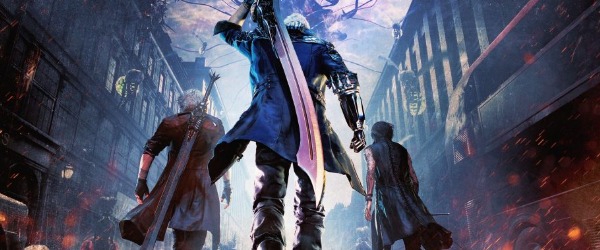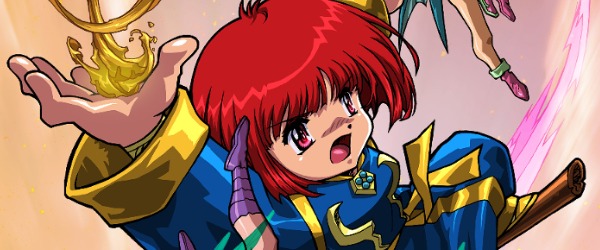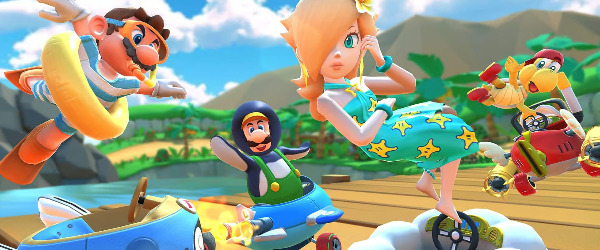
Bromio Interview - Inspirations, Kickstarter, Pato Box & Vita - Article
by Adam Cartwright , posted on 09 August 2018 / 3,591 ViewsKickstarter has been a rather mixed bag for Vita (as I wrote about in a previous article), with a number of great games released but many more still unavailable despite the creators happily taking funds from avid handheld fans. Despite this, it's difficult not to get excited about some of the more interesting-looking upcoming projects and undoubtedly the stand-out of these is Pato Box, a boxing-adventure game starring a duck that features 3D exploration mixed in with Punch Out style fighting.
The game is due for release on Vita this month (following successful launches on PC and Switch), so I took the opportunity to talk to the game's creators from Bromio about the project - in particular I wanted to know what inspired them to make the game in the first place as well as what convinced them to bring it to Vita.
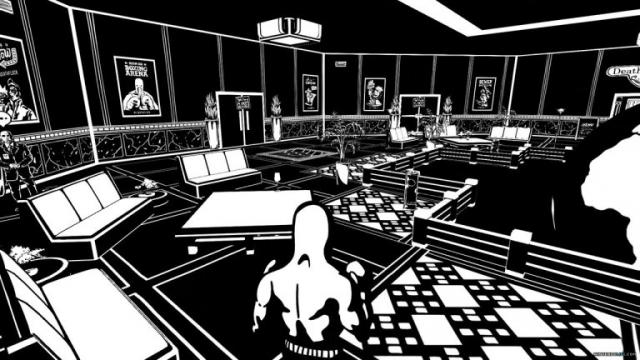
First off, tell me a little bit about yourselves. Who makes up Bromio and what do you all do?
Antonio: Hi! We are 9 people working at Bromio - Samir as Product Manager, Luis as Lead Programmer, Heri as Game Designer/Technical Artist, Colette as Animator/Illustrator, Emma as 3D Modeler, Joaquin as Progammer/QA, Abraham as Illustrator/Community Manager, David as Programmer and myself (Antonio) as Game Director/Programmer. In the development of Pato Box we also worked with Cesar from 2think Design Studio and Controvol.
Can you tell me about the history of your studio? How did you first get started in videogames?
Antonio: We started development of games in 2013, we were focused on mobile games as a learning point since getting our game released on the AppStore and the Google Play Store was easier at that time than Steam. After developing a couple of mobile games we wanted to make a bigger game and that's when we started developing Pato Box.
What made you decide on Kickstarter as a means to fund Pato Box? Did you find it difficult to pitch the game to traditional publishers?
César: We wanted to maintain all the freedom we could in the development. While we had some money saved for the project we knew that the development time could be reduced by the help of backers turning it into a crowd funding project and also use it as a tool to let more people know about our dream and help us make it happen.
What made you decide on Vita as a target platform for the game?
Antonio: We were able to get in touch with Sony some time ago and we got access to dev kits pretty early on. Unfortunately we weren't able to develop a game for it until Pato Box and we saw that the gameplay would be perfect to have on the go and that's why we decided to support the Vita.
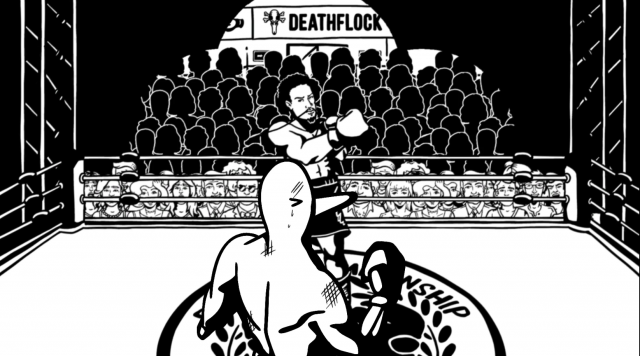
Was the response by the Vita community what you'd hoped it would be? Were you pleased with the feedback you received?
César: We met a lot of people really interested on the game being made for the Vita, and just like many of the development team, there were fans of the system that really got into it once we showed one build of it at PAX. We were really pleased to find out we were not the only ones that wanted this game on Sony's portable system.
Antonio: When we announced the game was coming to the Vita we got an overwhelmingly positive response from the community and they supported us a lot on our Kickstarter, so releasing the game on the platform is a big priority for us.
How did you first come into contact with Sony regarding Vita development? How has Sony been to work with?
Antonio: We met our contact in Sony at a development event in Mexico and they have been very supportive from the start; we received a dev kit really quickly after getting in contact with them.
How have you found working on Vita as a piece of hardware? Is it difficult to develop for? Have you had to make substantial changes to Pato Box to get it running?
Antonio: The portability on the system is great but it has been difficult for us to adapt the game for it. The stages on Pato Box are kinda big and we made the mistake early on of not taking the Vita memory into account, so getting the 3D exploration right has been a challenge for us. Most of the changes were made on the exploration side but we are did our best to keep the experience as similar as possible to the PC version.
What engine does Pato Box run in?
Antonio: Pato Box runs on Unity - the engine has been great for us and we feel really comfortable using it.
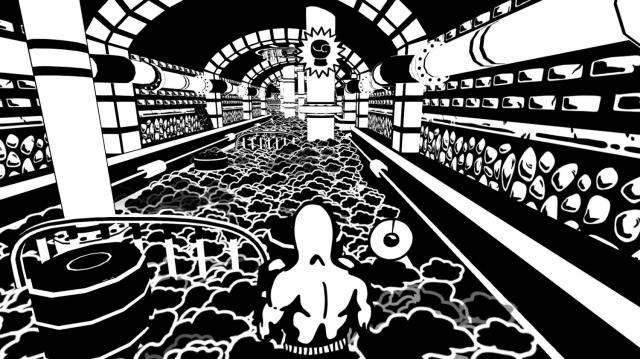
How long did it take to develop the game in total?
Antonio: The PC version took around 1 year and 8 months to develop. After that release we have been working on fixes, the arcade mode, and the ports of the game for around 4-5 months.
Has it been difficult raising awareness of your game within the ever-growing indie market?
César: I wouldn’t say it has been difficult but rather a slow process. We have relied on the users and their opinions on the game and how they recommend the game on social media and blogs. We have been lucky enough to grab the attention of some popular webpages that got interested in it as well expanding the exposure of it.
Let's talk about the game itself. What was the inspiration behind Pato Box? What made you decide on a boxing duck?
César: The character and some of the story was pitched at Bromio based on a comic book I created in my free time. The main character was charismatic enough to bring attention to the whole idea and we started brainstorming every idea that would bring the character to life.
Did you feel the need to fill a hole in the market left by narrative-driven boxing games like Punch Out?
César: We thought that the logical answer to making a game based on the character using the comic aesthetics would be Punch Out. The fact that there was need in the market for that kind of games just made it click afterwards.
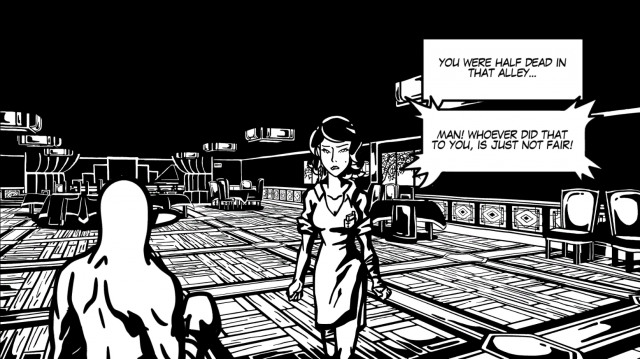
What features make Pato Box unique? What made you decide on including exploration-based elements in addition to the fighting?
César: Pato Box will show you a world that is a mixture of serious themes and places mixed with some really stupid moments and characters, making it a bizarre and unique experience. Most of the fights were designed to keep the simplicity of the Punch Out controls but to expand on the mechanics surrounding enemies to make it an original game. The exploration-based elements are meant to show more of the story of this world and act as a “break” between the hardcore fights in it.
How difficult is the game? Did you want to challenge players or make it accessible for newcomers?
César: At the end we decided to have a very challenging game that felt fair to the player. We always had in mind the newcomers to this kind of game, but we wanted to maintain the challenging aspects of the Punch Out series.
What is the expected length of the game? Anything to encourage multiple playthroughs?
César: I think it really depends of what type of player you are. For some the fights are the core within the game and they will jump right to the action, trying to achieve a high rank within each fight. Others want to dig into the story of the hero and his world and will try to find every secret and detail around the characters, not to mention the collectables we left scattered around. I like to think you can jump back to the game anytime to do all this stuff and discover more easter eggs hidden within, or just to get better at the bosses.
Will the game be PlayStation TV compatible?
Antonio: We are working on it!
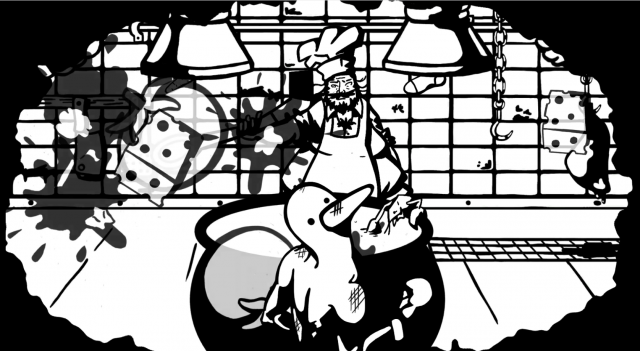
Will you attempt a physical release of Pato Box if the opportunity arises?
Antonio: Yes! It's something we really want to do but we are still looking into it to see what is our best option.
Finally, two questions I’ve been asking everyone – what are some of your favourite games you’ve played on Vita?
César: Tearaway, Gravity Rush, Hotline Miami and Sound Shapes.
Antonio: Persona 4 Golden and Gravity Rush are my favorites.
Which of the two Vita models (LCD or OLED) is your favourite?
César: OLED for me, it looks gorgeous.
Antonio: OLED also, the screen is amazing.
I’d like to thank Antonio and César for taking the time to talk to me. You can follow updates on their game Pato Box and any future Bromio projects via their website, but they’re most active on Twitter!








